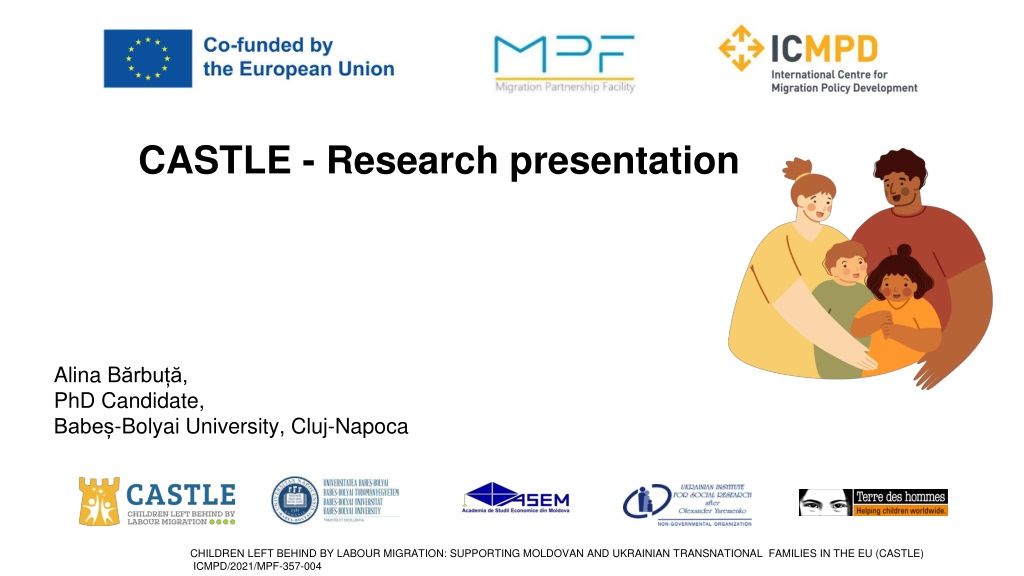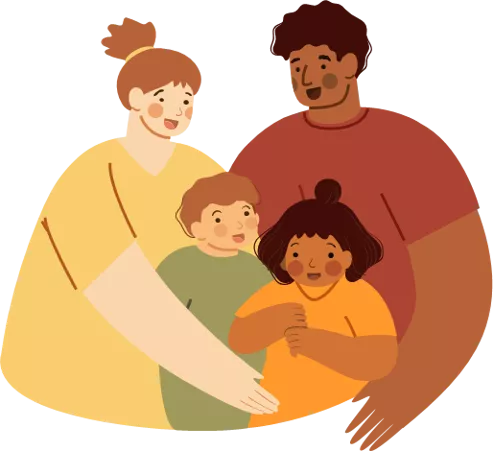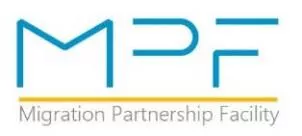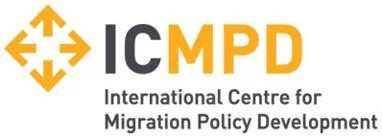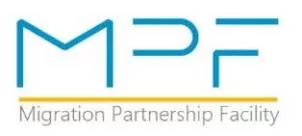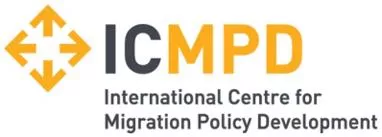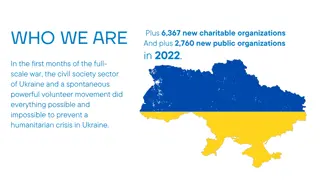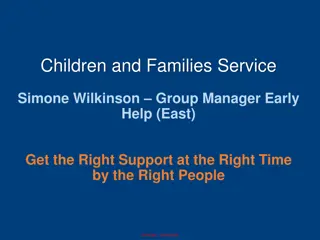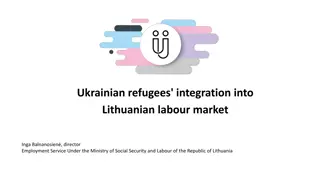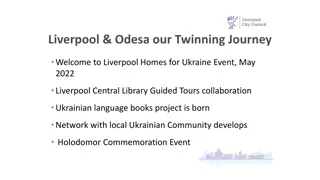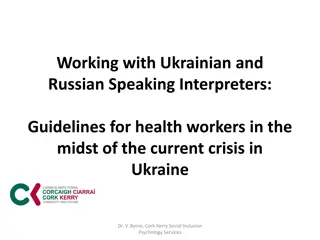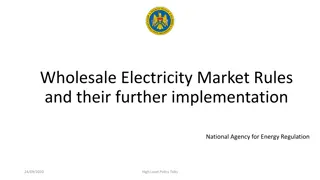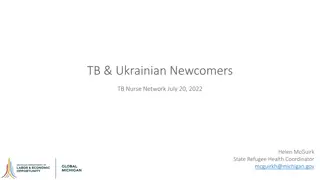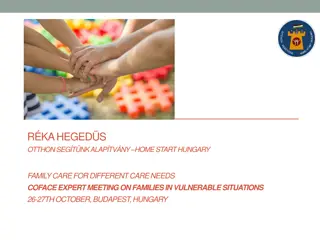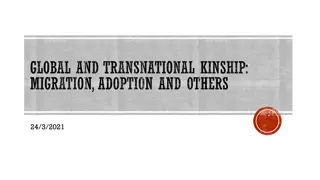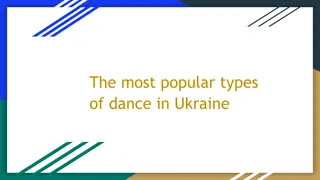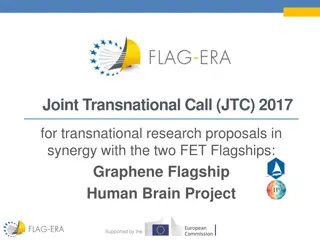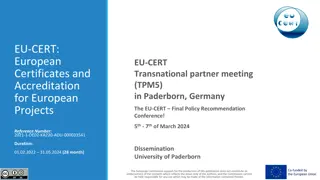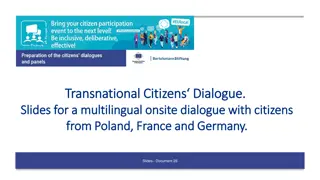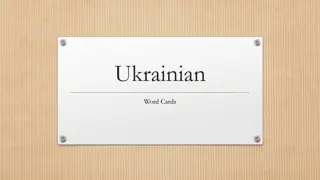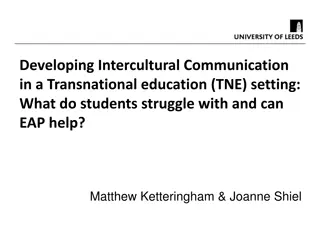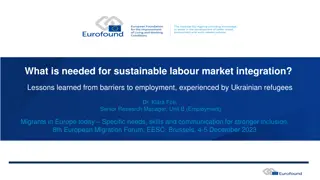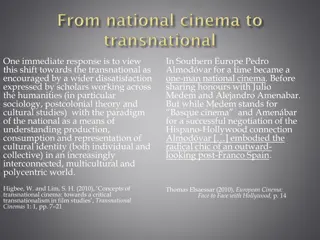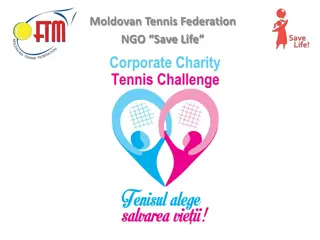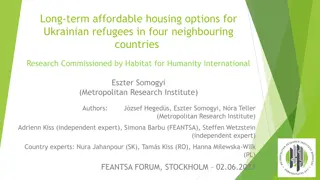Supporting Moldovan and Ukrainian Transnational Families in the EU
This research project, led by Alina B.rbu, PhD Candidate at Babe-Bolyai University, focuses on supporting Moldovan and Ukrainian transnational families affected by labour migration in the EU. Through qualitative social research methods like semi-structured interviews and focus groups, the project aims to highlight the challenges faced by stay-behind children and their families, while also showcasing effective family practices. Partners include Babe-Bolyai University, Academy of Economic Studies of Moldova, and Ukrainian Institute for Social Research among others. Co-funded by the European Union, this project runs from June 2021 to December 2023.
Download Presentation

Please find below an Image/Link to download the presentation.
The content on the website is provided AS IS for your information and personal use only. It may not be sold, licensed, or shared on other websites without obtaining consent from the author. Download presentation by click this link. If you encounter any issues during the download, it is possible that the publisher has removed the file from their server.
E N D
Presentation Transcript
CASTLE - Research presentation Alina B rbu , PhD Candidate, Babe -Bolyai University, Cluj-Napoca CHILDREN LEFT BEHIND BY LABOUR MIGRATION: SUPPORTING MOLDOVAN AND UKRAINIAN TRANSNATIONAL FAMILIES IN THE EU (CASTLE) ICMPD/2021/MPF-357-004
Project: CASTLE (Children Left Behind by Labour Migration: Supporting Moldovan and Ukrainian Transnational Families in the EU) https://fspac.ubbcluj.ro/castleaction/en Research Centre Centre for the Study of Transnational Families https://fspac.ubbcluj.ro/castle/en Leaders: Viorela Ducu (Telegdi-Csetri) Project manager ron Telegdi-Csetri Research manager Duration: June 2021 - December 2023 CHILDREN LEFT BEHIND BY LABOUR MIGRATION: SUPPORTING MOLDOVAN AND UKRAINIAN TRANSNATIONAL FAMILIES IN THE EU (CASTLE) ICMPD/2021/MPF-357-004
Partners: Babe -Bolyai University (BBU) (Coordinator) Academy of Economic Studies of Moldova (ASEM) Ukrainian Institute for Social Research after Oleksandr Yaremenko Terre des Hommes - Terre des Hommes delegation Romania Terre des Hommes Moldova Terre des Hommes Ukraine Beneficiaries: Republic of Moldova Ukraine Donors: Co-funded by the European Union Contracted through the Migration Partnership Facility, ICMPD Short description: 3-Country (Ro-Md-Ua) academia-NGO, co-researcher based action-research Project host: CASTLE centre https://fspac.ubbcluj.ro/castle/en CHILDREN LEFT BEHIND BY LABOUR MIGRATION: SUPPORTING MOLDOVAN AND UKRAINIAN TRANSNATIONAL FAMILIES IN THE EU (CASTLE)
Introduction While our research is one that addresses stay-behind children s situation in the context of migration, it also has its limits hence many aspects of migration that come into play cannot be addressed therein. Also, while we acknowledge the priorities of societies in foregoing migration as such, we also understand the necessities forcing family members to migrate, therefore accepting what has been called the transnational situation as a reality, and namely, as an extremely extensive one. Within that reality, our research, being part of an action research project that also involves co- researchers, aims to function as the voice of beneficiary groups - stay-behind children and their families - therefore aiming, beside signaling issues and calls for support, to also highlight family practices that may function as examples to be disseminated. CHILDREN LEFT BEHIND BY LABOUR MIGRATION: SUPPORTING MOLDOVAN AND UKRAINIAN TRANSNATIONAL FAMILIES IN THE EU (CASTLE) ICMPD/2021/MPF-357-004
Scientific context Qualitative social research, as employed in our project, is a tool aiming to identify situations, issues and practices not deductible from existing scientific data, therefore not yet quantitatively verifiable. In our case, it employs semi-structured interviews - where the respondent may speak their mind freely along certain guiding questions - and focus-groups - where they may discuss among themselves and reach shared positions. Transnational families, the object of our research, are families living habitually in different countries, who nonetheless maintain strong family ties and therefore function as an exemplary entity (Greschke and Ott 2020) for a real, functional global society - one that performatively unites belonging (as a family) and global participation (being a part of more than one society). Indeed, concerning their transnational co-presence and communication, it is up to the beholder which side to see: as in Escher s paradoxical figures (..) , we can see either the ruptures or the continuities. (Diminescu, 2008, p.569) CHILDREN LEFT BEHIND BY LABOUR MIGRATION: SUPPORTING MOLDOVAN AND UKRAINIAN TRANSNATIONAL FAMILIES IN THE EU (CASTLE) ICMPD/2021/MPF-357-004
General description of the research - 124 interviews with family members - stayer parent / caregiver, stayer child, migrant parent - 10 focus-groups with family members, of which 5 with children - 24 interviews with experts from authorities, institutions, NGOs, working with transnational family members - family member interviews / focus-groups have been collected in approximately equal amounts by the 3 national teams (Ro, Mo, Ua) with Moldovan and Ukrainian transnational families with at least one parent abroad in the EU a significant amount of time during the recent past - expert interviews have been taken by the 3 teams, with Mo and Ua as well as Ro experts - a large majority of interviews have been taken online (Facebook messenger, Zoom, WhatsApp, Viber etc). The languages were Ukrainian, Russian and Romanian, with Hungarian in one case CHILDREN LEFT BEHIND BY LABOUR MIGRATION: SUPPORTING MOLDOVAN AND UKRAINIAN TRANSNATIONAL FAMILIES IN THE EU (CASTLE) ICMPD/2021/MPF-357-004
Data collection methods and the research population Republic of Moldova Romania Ukraine INDIVIDUAL INTERVIEWS (126) Adults (migrants and caregivers) 50 12 26 Family members Minors (stay-behind) 12 12 14 Experts 11 10 3 FOCUS-GROUPS (10) Family members Adults (migrants and caregivers) 2 FG sessions(13) Young adults with one parent/both parents abroad 2 FG sessions(11) Family members 1 FG session(7) Family members Children 3 FG sessions(16) 2 FG sessions(13) CHILDREN LEFT BEHIND BY LABOUR MIGRATION: SUPPORTING MOLDOVAN AND UKRAINIAN TRANSNATIONAL FAMILIES IN THE EU (CASTLE) ICMPD/2021/MPF-357-004
Findings presented What follows below are the findings of the BBU team following primary analysis of data. The data has been analyzed with use of the MAXQDA 2022 software, through coding text segments of the transcripts from recorded interviews / focus-groups by 32 thematic codes divided into 6 groups. The analysis is not and cannot be exhaustive. We prioritized perspectives such as children s voice, digital communication, family issues, ones suggested either by the priorities of the project, by co- researchers or by the acuteness of the situation. The recommendations that follow have been based on these findings, also taking into account the Ukrainian and Moldovan team s suggestions. Each of the 3 research teams and their respective speakers will present their own, more detailed findings and recommendations later in the day. CHILDREN LEFT BEHIND BY LABOUR MIGRATION: SUPPORTING MOLDOVAN AND UKRAINIAN TRANSNATIONAL FAMILIES IN THE EU (CASTLE) ICMPD/2021/MPF-357-004
The review of relevant legislation is part of the wider desk research component in the CASTLE project. (work in progress) Rationale To outline and critically discuss the legal provisions that are relevant in relation to the phenomenon of labor migration and children left behind as a result of their parents working abroad. CHILDREN LEFT BEHIND BY LABOUR MIGRATION: SUPPORTING MOLDOVAN AND UKRAINIAN TRANSNATIONAL FAMILIES IN THE EU (CASTLE) ICMPD/2021/MPF-357-004
Provisional structure of the review International and European Union Legislation International documents relevant in relation to cross-border circulation of migrants, child protection and child rights EU Legislation on Migration, left-behind children and family reunification Country Analyses Republic of Moldova Ukraine Romania CHILDREN LEFT BEHIND BY LABOUR MIGRATION: SUPPORTING MOLDOVAN AND UKRAINIAN TRANSNATIONAL FAMILIES IN THE EU (CASTLE) ICMPD/2021/MPF-357-004
Country analyses - quick glances (1) Republic of Moldova 2008 first time when the national legislation addressed the issue of children left without parental care, as a result of their parents migration abroad. Relevant provisions within the national legislation Relevant provisions as part of international normative acts ratified by the Republic of Moldova Additional provisions stemming from a number of human rights conventions to which the Republic of Moldova adhered as a members of the Council of Europe (since 1995) CHILDREN LEFT BEHIND BY LABOUR MIGRATION: SUPPORTING MOLDOVAN AND UKRAINIAN TRANSNATIONAL FAMILIES IN THE EU (CASTLE) ICMPD/2021/MPF-357-004
Country analyses - quick glances (2) Ukraine The issue of labor migrants children has been addressed repeatedly in Ukraine, since mid-2000s, becoming a salient topic on the public agenda Beginning with 2016, the law "On external labor migration" specifically mentions, for the first time, the children of labor migrants and their rights. While the enforcement of the law signaled an important advancement, its outline fails to address a number of important issues, which hinders its ability to fully cover the complex phenomenon of children left behind. CHILDREN LEFT BEHIND BY LABOUR MIGRATION: SUPPORTING MOLDOVAN AND UKRAINIAN TRANSNATIONAL FAMILIES IN THE EU (CASTLE) ICMPD/2021/MPF-357-004
Country analyses - quick glances (3) Romania Two-folded status: sending country in the context of EU-level labor migration and (more recently) destination country Categories of issues addressed in the review: provisions on the residence and employment of foreigners; protection of children whose parents are abroad for work; migrant parents rights in the countries of destination CHILDREN LEFT BEHIND BY LABOUR MIGRATION: SUPPORTING MOLDOVAN AND UKRAINIAN TRANSNATIONAL FAMILIES IN THE EU (CASTLE) ICMPD/2021/MPF-357-004
Perceptions and projections of abroad and of home Overall: - numerous children have, on occasion, visited their migrant parents country of stay or even other countries on trips - perceptions are predominantly formed by projections through parents and peers stories, or even social or broadcast media - since socially, migration is the norm, the foreign nature of abroad is entirely domesticated ( normal , not worth mentioning ) What seemed striking in their perceptions is the lived, direct, aesthetical rather than economic, cultural or political perception that is usual with adults: CHILDREN LEFT BEHIND BY LABOUR MIGRATION: SUPPORTING MOLDOVAN AND UKRAINIAN TRANSNATIONAL FAMILIES IN THE EU (CASTLE) ICMPD/2021/MPF-357-004
Voice and agency - the views and stances of youth on migration Overall: - children are told, sometimes in advance, but not involved in, decisions relating to migration; - all passively contribute through understanding and accepting adult arguments (mostly economic) - strongly undergoing a feeling of loss/missing the parent - increased self-management, mutual support among siblings and peers - actively, through additional contributions to household and even support given to adults including the migrant Children and youth see leaving and staying in a more nuanced, open and fluid manner and are often covertly critical of adults: - perplexed by the apparent non-necessity of migration (in more affluent families) (Ua) - should leave for a certain amount, and for a certain goal, then return (Ua, Md) - he knows that a family is waiting for him at home (Ua) - I might study here or there, haven t made up my mind yet (Ua) CHILDREN LEFT BEHIND BY LABOUR MIGRATION: SUPPORTING MOLDOVAN AND UKRAINIAN TRANSNATIONAL FAMILIES IN THE EU (CASTLE) ICMPD/2021/MPF-357-004
Transnational communication - frequency and functionality Overall: mostly very abundant communication involving much Internet access and usage, high degree of co-presence and interest, sometimes group communication or through third persons (adult at home); also, much Internet use for other purposes to replace parent as information source. In a number of cases, long-distance communication also happens with the school of the child. In some cases, it was reported that: - previously dysfunctional relations improved due to distance and to the value of time together (Ua, Md) however it is not always welcome (since not credible) - My relationship with Dad improved once he left to Belgium. It was a very weird thing for me, there were issues and in order not to bring them home and tell Mom, he told them to me. He saw that I had matured, that I have my own point of view (Md) CHILDREN LEFT BEHIND BY LABOUR MIGRATION: SUPPORTING MOLDOVAN AND UKRAINIAN TRANSNATIONAL FAMILIES IN THE EU (CASTLE) ICMPD/2021/MPF-357-004
Relationship with caregivers - from intimate and functional to superficial and conflictual Overall, relationships with those in the environment improve due to necessity; however, an effort is made to keep the caregiver role as it is ( you cannot replace a person ), however, recognition is given to their effort and to the difficulty of their multiple roles. In certain cases, it happened that: - the caregiver became a role model (a lawyer, parents being of more modest professions) (Md) - extremely harsh involvement by a grandmother resulting in state care of children in a migrant mother - alcoholic father family (Ua) CHILDREN LEFT BEHIND BY LABOUR MIGRATION: SUPPORTING MOLDOVAN AND UKRAINIAN TRANSNATIONAL FAMILIES IN THE EU (CASTLE) ICMPD/2021/MPF-357-004
Temporality, age, transnational suspension Overall: while the transnational suspension in temporariness (Ducu, 2018) has remained typical with adults ( plans - they have been there all along, Ua) and plans to emigrate or return remain constantly postponed, some steps towards self-conscious transnationalism have emerged and the unpredictability of migration assumed as such. With children however, this is not the case when young - they tend to adapt to a parent s absence ( cry it off ) and hope for his/her return. Constant communication also adds to a normalization of transnationalism, however the feeling of loss and distance remains. Also, children often don t remember the time before migration, hence this situation is all the more normal and temporally indefinite. Differences were shown in correlation with age - adolescence (from 12 to 16) being more problematic since it enters the temporality of planning hence of suspension. Also, they correlated with the person migrating, gender and age-specific relationships ( girls grow closer to their mothers at this age , boys need their fathers at his age and I m not there ) being highlighted. CHILDREN LEFT BEHIND BY LABOUR MIGRATION: SUPPORTING MOLDOVAN AND UKRAINIAN TRANSNATIONAL FAMILIES IN THE EU (CASTLE) ICMPD/2021/MPF-357-004
Thank you! The team CHILDREN LEFT BEHIND BY LABOUR MIGRATION: SUPPORTING MOLDOVAN AND UKRAINIAN TRANSNATIONAL FAMILIES IN THE EU ICMPD/2021/MPF-357-004 CHILDREN LEFT BEHIND BY LABOUR MIGRATION: SUPPORTING MOLDOVAN AND UKRAINIAN TRANSNATIONAL FAMILIES IN THE EU (CASTLE) ICMPD/2021/MPF-357-004
